By Trevor Wilson and Alecia Maragh
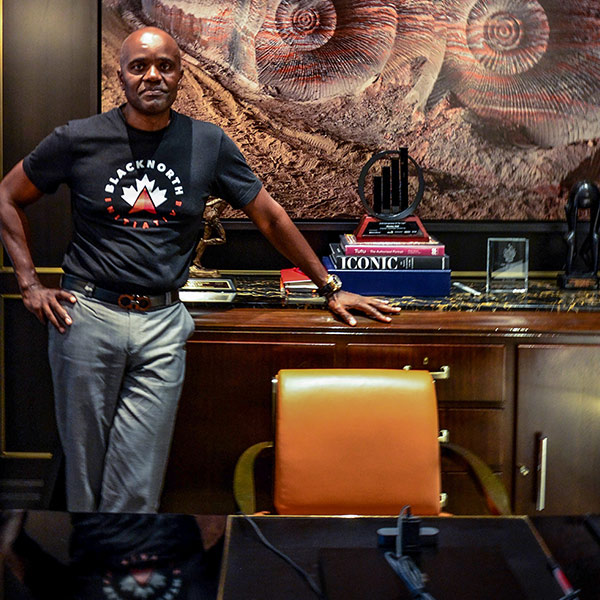
Wes Hall, one of Canada’s most influential powerbrokers, runs the leading shareholder advisory firm in North America. This strong, confident and dynamic man was the subject of a rags-to-riches success story featured on the cover of Report on Business (a magaizne insert in The Globe and Mail) on January 30, 2014. The story notably referred to Hall as “The Fixer,” a title that best describes him.
Yet, in spite of his myriad successes, a pattern of anti-Black systemic racism permeates the lives of Hall and his family on a regular basis. As he navigates his Ferrari 458 between his Rosedale home and his King Street office in the heart of downtown Toronto, Hall anticipates being pulled over by the police at any given time, and having to quickly code-switch between the world of the businessman and the reality of being just another Black man. He is acutely aware that Indigenous and Black individuals are more likely to receive unfair treatment from the police in Canada than any other group, relative to their population size.
The tentacles of such all-encompassing racism can reach deep into the psyche, and create a sort of automatic self-censorship, as Hall has come to realize. “I was out for a walk recently and saw an elderly White woman fall,” he says. “I was hesitant to help her, because I was concerned she would be startled by a Black man helping her, or that the neighbours would call the police on a Black man standing over an elderly White woman. How many White men would think this way?”
The effect of systemic racism not only impacts Hall, but he has also seen its effects on even his young children. It can take all forms. “When my boys are at the park playing basketball and a neighbour calls the police and the police order them to clean up all the garbage in the entire park and leave, this is anti-Black systemic racism,” Hall says. And “When my daughter is called the N-word at an exclusive private school in Toronto, this is anti-Black systemic racism.”
Studies have shown that race is deeply implanted in our psyches at the individual and collective levels. The stereotypes depicting Black people as violent, delinquents, and intimidating, can sometimes be deadly, as in the case of George Floyd, a Black man who suffocated under the knee of a police officer during an arrest. Hall couldn’t help seeing himself in Floyd, and feeling so viscerally impacted after watching the video of the man’s killing. He knew he had to act, and that staying silent was no longer an option, “… because all the people, like myself, who have gone through those things and just shrugged them off all these years are now going, okay, enough is enough! We need to use our influence to do something about it. We can’t just shrug it off and say it’s no big deal, because it’s not going to end.”
Hall’s response was to write an article entitled, “When I look in the mirror, I see George Floyd – and so do others,” which appeared in The Globe and Mail on June 3, 2020. Like Martin Luther King Jr., Muhammad Ali, Tommie Smith and John Carlos, and the many other Blacks throughout history who spoke up only to be silenced by the White establishment, the usually self-assured Hall was worried that he would lose everything he had worked hard to attain, once the story appeared.
Hall, who was raised in a zinc shack with his grandmother and at least a dozen other siblings and cousins, was painfully aware of what it meant to have little. There is a saying in Jamaica, “If yuh waan good, yuh nose haffi run” (You have to work hard for what you want in life), and Hall recalls as a child his 60-year-old grandmother working on the plantation, making wares to sell, and doing her best to make the food stretch farther for her grandchildren, with little support. He recalls promising his grandmother that he would one day help her financially, only to have her tell him to focus on getting educated and live a moral life. She died before he was in a position to support her, but her selflessness and work ethic continue to guide his life. That work ethic has helped Hall climb the corporate ladder with the support of mentors and sponsors, and become the business leader he is today.
Hall worried that all that hard work would be for naught. He feared that he would lose contacts, contracts, and credibility in the business community, and he would be, in his words, “Kaepernicked.” Hall explained, “Kaepernick knelt down and put his fist up and said police brutality is wrong and the way we treat Black people is wrong. One of the best quarterbacks in the league can’t play for the worst team in the league because they boycotted him. Until today, he is still boycotted. Right?”
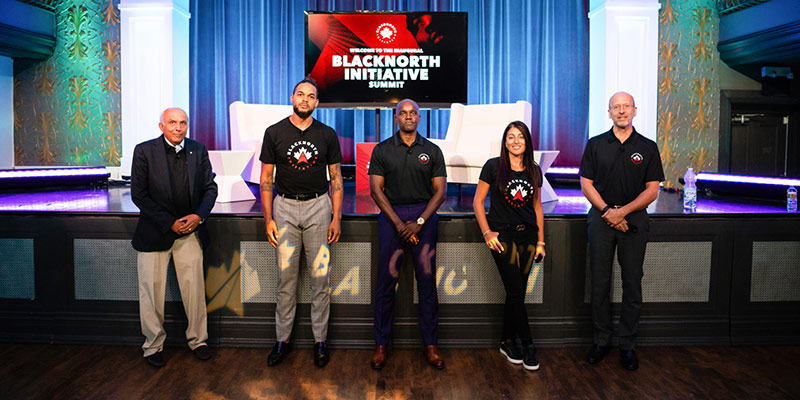
Fortunately, his fear of being boycotted proved to be unfounded. Hall received overwhelming support from a number of business leaders from across Canada. This further inspired Hall to pen a letter to the Toronto Star entitled, “I Saw No Examples of Black Corporate Leaders Talking about Systemic Racism. So, I’m Speaking Up.”
The Canadian Council of Business Leaders Against Anti-Black Systemic Racism, otherwise known as the BlackNorth Initiative, was borne from his “speaking up.” The BlackNorth Initiative has strong leadership on its 24-member Board, including its Chairs, and its mandate is supported by close to 20 committees comprised of reputable business, political, and not-for-profit leaders.
The BlackNorth Initiative
The Initiative enables senior Canadian business leaders to sign a non-legally binding CEO Pledge, committing their companies to seven concrete actions:
- Increase efforts to make workplaces trusting places to have complex, and sometimes difficult, conversations about anti-Black systemic racism, and ensure that no systemic barriers exist to prevent Black employees from advancing within the company
- To implement or expand unconscious-bias and antiracism education, and make non-proprietary unconscious-bias education modules available to others free of charge
- To share best—and unsuccessful—practices, helping other companies evolve and enhance their current diversity strategies, and encourage them, in turn, to share their successes and challenges with others
- Create and share strategic inclusion and diversity plans with the board of directors, establishing at least one diversity leadership council
- Use resources to work with members of the Black community to increase awareness of opportunities for employment within our organization, and ensure that employment opportunities are set aside for Black people, including committing to specific hiring goals of at least 5% within our student workforce from the Black community and investing at least 3% of corporate donations and sponsorships to promote investment and create economic opportunities in the Black community, both by 2025.
- Engage Canada’s corporate governance framework with a goal of, at a minimum, 3.5% of executive and board roles based in Canada held by Black leaders by 2025
- Create the conditions for success (what gets measured gets managed) by collecting data on race and ethnicity, including from Black employees, to understand where we have gaps and when we are making progress
Although Hall had been quietly making efforts to combat systemic anti-Black racism since 2016, it was the murder of George Floyd on May 25, 2020, in Minnesota that set the stage for the BlackNorth Initiative to launch on June 10, 2020, and initiate its mandate. Incredibly, the Initiative has already secured support from over 300 CEOs signing the Pledge. Valued at a market cap of over $1 trillion, these organizations span various sizes, industries, and mandates—ranging from financial and professional services to health care. The companies are now united by a pledge to create opportunities for current and future employees in the underrepresented Black, Indigenous, and People of Color (BIPOC) communities of corporate Canada.
While the Greater Toronto Area is a beacon of diversity, with more than 250 ethnicities speaking 170 languages calling the region home, and more than half of the population identifying as a visible minority, this diversity fades as you examine the higher ranks of the corporate offices in downtown Toronto. McKinsey’s Diversity Wins: How inclusion Matters made the case that companies in the top quartile of ethnic and cultural diversity outperformed their counterparts in the fourth quartile by 36 percent. This report has not become operationalized by Canada’s Big 6 (the dominant banks in Canada) or its largest life insurers as noted in a Bloomberg article entitled, “Toronto Banks Lack Minority Leaders in City of Diversity,” that looked at almost 200 top executive and board positions, and found only one position occupied by a Black person.
It is the lack of representation at the board level, as well as in executive and senior management positions, and the lack of a pipeline, that the BlackNorth Initiative seeks to address with goal number six. This goal taps into the business mindset of metrics and accountability, and sets a numeric goal that a minimum of 3.5 percent of executive and board roles based in Canada must be held by Black leaders by 2025. In contrast to a quota, the 3.5 percent number is seen as a target (reflecting the 3.5 percent of Canada’s population that identifies as Black) that represents the Black talent whose careers would have led to boardrooms had systemic racism not filtered them out. A Jamaican by birth, Hall likens the filtering process to a race where track superstar Usain Bolt is being challenged to run a 100-meter race, but under the condition that he wear a potato sack.
Hall notes, “You can say, ‘Well, I have Black friends or Black neighbors. I go to basketball games and I see all these Black people. I hang out with them, and I like them.’ But if they don’t exist in your organization, there’s a reason for that. There’s a bias in your own organization that’s preventing them from doing that. And if they don’t live in your neighborhood, if they’re not there in your neighborhood, why is that? Why are they not here?”
He challenges business leaders to think of their bright and competent Black counterparts—with whom they went to business school, worked on projects, and started their careers—and ask themselves why they are not in the same boardrooms. He believes business leaders will find that it is a combination of the structural lack of mentorship, sponsorship, representation at the higher echelons, networking, formal pipelines, and lack of recognition of the lived experiences of these Black counterparts.
The result is that when Blacks are not invited to the boardrooms or the executive suites, they are forced to create their own business. Still, today the rooms of power, are divided among racial communities. Hall hopes to change this with the BlackNorth Initiative.
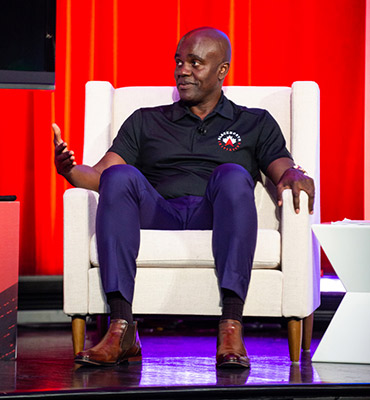
In addition to high-profile companies that have signed the pledge, another early win for the Initiative was a $1 million donation from one of Canada’s well-known philanthropists, Seymour Schulich and The Schulich Foundation. The donation is to support the building of a Cultural Centre for Black Canadians to ensure Black history is accurately recorded and communicated. According to the press release, “The cultural center will raise awareness about the challenges Black Canadians face, preserve and spotlight Black history in Canada, promote Black arts and culture, and be a gathering place for people of all backgrounds working together to combat anti-Black systemic racism.”
The Cultural Center will tell the story of Black Canadians who contributed to Canada’s development. For example, Robert Sutherland (1830–1878), was not only Queen’s University’s first Black graduate, but he was also the first university graduate of colour in British North America, and the first Black lawyer. One of the University’s most important early donors, he left the school his entire estate. This donation, its largest at the time, has been credited for saving the institution from financial ruin.
Black community leaders argue that when stories such as Sutherland’s are not told, and when slavery and its impact is not taught as part of Canadian history, we fail to understand the contribution to our society made by Black Canadians and miss the opportunity to dissect the roots and impact of anti-Black systemic racism. The cultural mosaic that Canada prides itself on means that a push for racial equity can be seen as redundant, as some perceive that Canada does not have the systemic problem that the United States has, as it relates to race.
To those who doubt that anti-Black racism exists, Hall offers the following challenge: “Identify a curriculum where Black history is taught. Ask a Black friend or a colleague if systemic racism exists in Canada. I’ve never heard a Black person say that there is no systemic racism.”
This recognition that systemic anti-black racism exists has led Prime Minister of Canada Justin Trudeau to say, “As a country, we can’t pretend racism doesn’t exist here. Anti-Black racism is real. Unconscious bias is real. Systemic discrimination is real. And they happen here in Canada.”
It follows that the Canadian workplace should reflect the wider Canadian society.
This reflects one of the two key takeaways that Kingsdale Advisors President Ian Robertson, who serves as the communications leader and a key leader in the Initiative, and who is a White executive, says has become more evident over the past 60 days.
Robertson’s first takeaway is that corporate Canada has failed to truly understand or empathize with what it means to be Black on Bay Street and the anti-Black systemic discrimination that Black leaders and professionals in particular have had to overcome.
To the outside gaze, Robertson’s boss, Wes Hall, operates in a world where executive presence, political calculation, and power are currencies worth their weight in gold. He has led billion-dollar deals and high- profile activist campaigns spanning the United States and Canada, including Enbridge and Spectra Energy’s $37-billion merger and Tim Hortons and Burger King’s $12.5-billion merger. However, the emotional tax and additional struggles that racism inflicts, and that Hall and other Black executives have to overcome, to show up in corporate Canada seemingly unscathed, were largely not understood. Hall’s stature and prominence in the community, and his op-ed letters in The Globe and Mail and Toronto Star, made his reality revelatory and allowed the larger construct of anti-Black racism to become personal and credible in the eyes of his White peers. The evolution from op-ed to Initiative helps bridge the divide. Hall explains that he sees it as his responsibility to call up corporate Canada and say, “Corporate Canada, we can do better. And let’s figure out how we can work together and do better.”
It is important to note that the emotional tax faced by Black leaders working on these issues is a point worthy of serious discussion. Among Diversity and Inclusion experts, there is concern about Black colleagues being tasked with the responsibilities of educating their counterparts, while not being compensated or recognized for the additional work. The Harvard Business Review article, “Toward a Racially Just Workplace,” notes that this results in Black professionals taking on the role of “cultural ambassadors” and doubling their workload as they fill the role they were “hired to do, and a second one as a champion for members of the person’s minority group.” This comes at the cost of burnout from “diversity fatigue” due to their participation in task forces, panels, and training sessions.
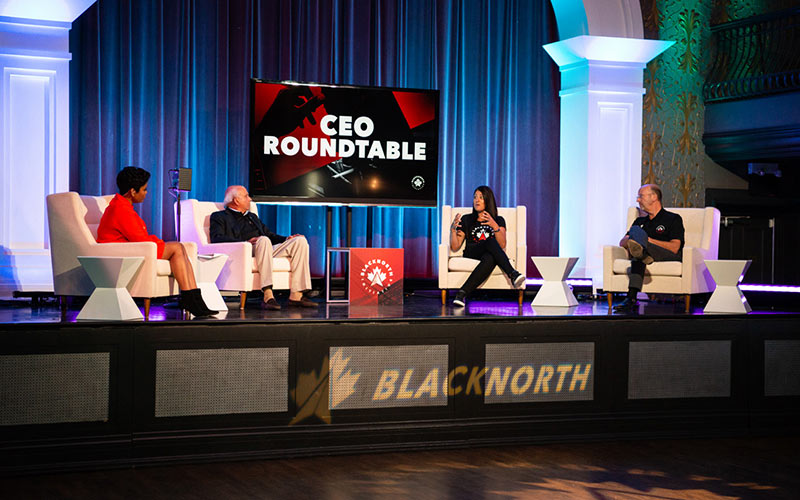
Robertson’s second takeaway is that diversity and unconscious-bias education has not been successful, despite being a staple of the workplace for more than five decades.
There may be several reasons for its failure to move the needle.
One reason may be our understanding and expectations. In the Anthropology Now Journal article, “Why Doesn’t Diversity Training Work? The Challenge for Industry and Academia,” Dobbin and Kalev examine five reasons that this training fails. The result could be a waste of resources, increased feelings of disengagement, or worse, increased bias. This article mirrors the findings of a University of Toronto study that looked at how the level of bias increased or decreased in White subjects, depending on whether participants felt externally forced or internally motivated to participate in an implicit-bias-related activity. The takeaway is that unconscious bias instruction has to be evidence based, action oriented, and conducted with relevant framing.
Another reason that unconscious bias training may fail is that it has to be understood in a much larger, more complex conversation about structural racism and inequities. A Forbes article entitled, “Your Unconscious Bias Trainings Keep Failing Because You’re Not Addressing Systemic Bias,” looks at structural racism and other systemic and structural issues (SSI), such as exclusive and hostile work environments, affinity bias, and the network gap. To tackle SSI, one Business Insider article entitled, “I’m A Diversity and Inclusion Expert Who Admits that ‘Unconscious Bias’ Trainings Don’t Work. Here Are 3 Ways Companies Can Ensure They’re Not a Waste of Time,” suggests looking at company policies, requiring manager accountability, and including relevant scenarios in unconscious bias training.
It is for this reason that the BlackNorth Initiative goals number 2 (The implementation or expansion of unconscious bias and antiracism education) and 3 (Commitment to sharing best practices, as well as unsuccessful practices) are so critical.
The winning formula
It is uncommon for an organization less than three months old to have accumulated the wins the BlackNorth Initiative has already achieved.
Despite its momentum, the Initiative is not without its fair share of critics.
Some critics worry about the Initiative’s ability to connect progress made at the top of the organization with the grassroots. Our response is two-fold: 1) BlackNorth Initiative offers a holistic approach to the problem of anti-Black racism with committees focused on Justice, Education, At Risk Youth, Mentorship/Sponsorship, and Health, etc.; and 2) the Initiative aims to identify, partner with, and support grassroots organizations that are already engaged in progressive work, but that need resources such as money, expertise, and political support to help them scale up and have better results. Moreover, the Initiative will use the momentum from the top to create meaningful and sustainable change on the ground.
The second critique concerns BlackNorth’s chairs and board of directors, and the fact that there is not a full board of Black members. The current make-up of the board is based on the central principle that those who have been oppressed by the system are unable to change it on their own—as generation after generation have shown. And as Blacks are unable to end anti-Black systemic racism on their own, the gatekeepers of the oppressive system are the ones who have to make the changes. It is not a problem for Blacks to fix. Some would argue that this reasoning has been one of the key reasons for the movement’s unprecedented success.
Robertson, who hails from a unique background of handling proactive and strategic communications and crisis management in the not-for-profit, political, and corpo-rate worlds, adds his take on other reasons for BlackNorth’s success. He shared how the BlackNorth team was able to craft a powerful three-pillared playbook that brought more than 300 CEOs to the table.
Pillar One
This included tapping into the sense of collective solidarity and commitment to a common cause created by the pandemic, which had not been seen since World War II. Businesses in Canada followed government shutdown requirements and formed a collective front for tackling the pandemic. It was not difficult for businesses to see that a similar approach would be needed to tackle a systemic social pandemic.
Pillar Two
This meant mirroring the push for gender equality. In Canada, companies on the Toronto Stock Exchange were required to disclose the number of women in senior executive and director positions, and outline their policies in this area. In less than five years, the companies achieved a 6 percent increase in the number of women in board positions. This change was accompanied by a cultural shift and an understanding of how targets can be effective.
Without government regulation mandating the targets, BlackNorth saw the commitment to targets and timelines coming from C-suite as important. According to Robertson, a handful of companies requested a more diluted pledge without targets or timelines, which is an uncharacteristically un-businesslike approach to a business problem. BlackNorth has been clear that it is interested in partnering with CEOs who are serious about change and not companies that are simply looking for a quick PR hit without a commitment to meaningful, measurable change. He explains that the BlackNorth Initiative believes that the moment for performative showmanship has passed. The Initiative further challenges leaders who want to continue to use a catch-all approach to diversity to consider how it would differ from what they have always done and to show where there has been progress.
Pillar Three
This pillar consisted of presenting a compelling business case and looking at both risks and opportunities.
- Risks
As we look at the risks, shareholder activists can use a lack of diversity and the unwillingness to improve performance as another tool in their toolkit to push for leadership turnover.
Further tipping the scale is the damage to reputational capital and the hefty financial price tag of racial discrimination suits. According to a Harvard Business Review article entitled “Why Diversity Programs Fail”, a prime example is that in 2013, Bank of America Merrill Lynch settled a suit for $160 million. This case, coupled with other settlements, cost over $500 million in settlements for Merrill Lynch over 15 years.
- Opportunities
As previously noted, several studies have shown that diversity (including cultural and racial diversity) improves financial performance, employee engagement, and innovation results.
The generational cohorts of Millennials and GenZ are more likely to use strong environmental, social, and governance factors to decide which companies they buy from, work for, and invest in. This evolution in how potential employees, clients, and consumers understand the role of business led to 200 of the top CEOs committing to “purpose and profit” at the Business Roundtable in 2019. Society expects companies that access public capital to have a social conscience, examine society, and bring about positive change. It is in this context that Robertson asks CEOs to consider the longer-term reputational capital and legacy of their tenure and their businesses, and to reflect on how history will judge their actions.
Lessons Learned
The chairs of the BlackNorth Initiative are heartened to see the progress being made as more Black leaders are recruited for board positions, evidence-based unconsciousbias training programs are initiated, supply chains are diversified, and companies are embedding diversity and inclusion strategies. There are also corporate marketing commitments regarding the way Black persons are portrayed. The chairs hope to see the BlackNorth Initiative serve as a template for other racial/ethnic and other groups to follow.
When asked what is on the horizon, BlackNorth chairs report that American Black business leaders have reached out to assess whether a similar initiative could be implemented south of the Great White North, bringing full circle a movement that was catalyzed on U.S. soil on May 25, 2020.
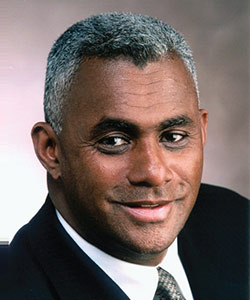
Trevor Wilson
This article is based on an interview with Trevor Wilson, President, TWI Inc., and the creator of “Human Equity.” Trevor is a D&I Strategist, and leading consultant on issues of diversity and equity in the workplace. He is the author of two books: Diversity at Work: The Business Case for Equity and The Human Equity Advantage: Beyond Diversity to Talent Optimization. Trevor is a regular contributor to this magazine ([email protected]).

Alecia Maragh
Alecia Maragh is a freelance writer with TWI Inc. She writes about diversity, equity, and the future of work.


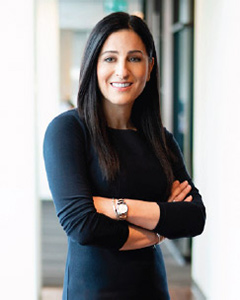
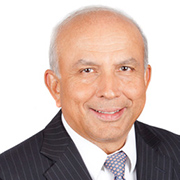
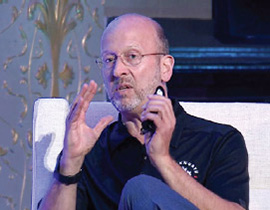
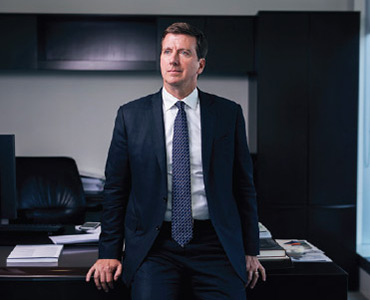

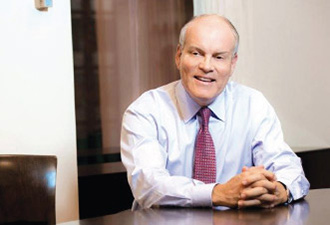
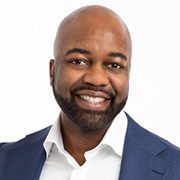
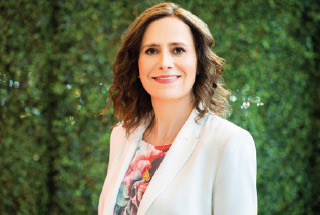
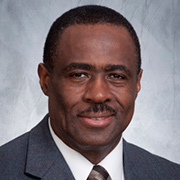
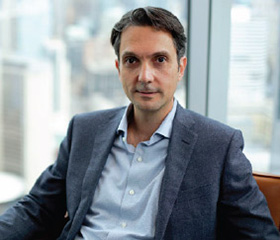
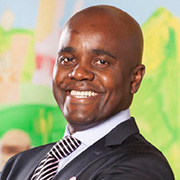
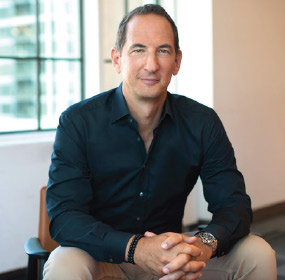
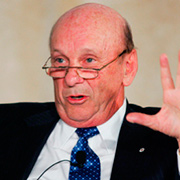
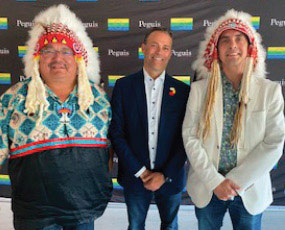





Thanks for ths article!